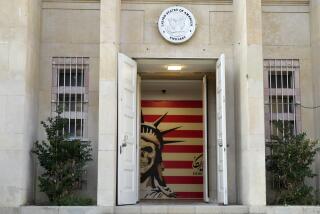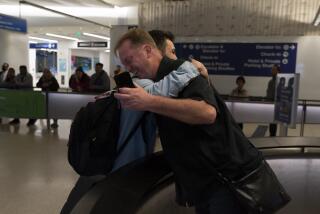The Ayatollah in the Cathedral by Moorhead Kennedy (Hill & Wang: $17.95; 220 pp.)
- Share via
Moorhead Kennedy, one of 52 Americans imprisoned in the U.S. Embassy in Iran from 1979 until 1981, has written yet another hostage memoir--but this one escapes the usual mold. In the five years since his ordeal, Kennedy has changed from diplomat to Episcopal peace worker; his book uses the hostage crisis largely as a springboard for an extended sermon on the place of morality in public affairs. His message is valuable, if often diffuse.
Kennedy calls the Iranian revolution and the seizure of the Tehran embassy “the Pearl Harbor of the Foreign Service,” and adds a poignant note to that familiar argument: He and others in the embassy did not warn Washington partly because they felt it would endanger their careers. Nor, he says, were the lessons of the crisis clearly learned. The Reagan Administration argued that it could deter terrorist attacks by “standing tall,” but its experience has been closer to Jimmy Carter’s than officials like to admit.
Kennedy’s conclusions about terrorism will comfort neither the Administration nor its most liberal critics. Kennedy argues that military force should be used against terrorists when necessary--but warns that it will be futile if the United States does not also work visibly to solve the root causes of anti-Americanism.
More to Read
Sign up for our Book Club newsletter
Get the latest news, events and more from the Los Angeles Times Book Club, and help us get L.A. reading and talking.
You may occasionally receive promotional content from the Los Angeles Times.











